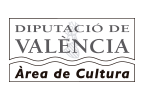The political trace left by feminism in developed societies since the last third of the 20th century is undeniable. Because, among other reasons, the feminism has been and still is a social reformist movement whose goals —it became clear long time ago— only can be reached through political action. But perhaps now it’s time to wonder if adding a feminist turn or a perspective which be different from the usual ways of understanding and making politics is enough. Is feminism a thin ideology which needs to blend with other ideologies of greater scope such as social democracy, to work better? Is it just one more section that can be added to other similar sections (such as environmentalism, pacifism, animal rights movement, etc.) in the current political engineering? Or, on the contrary, is it time to feminize politics, that is, time to change the way of managing public affairs on the basis of a gender perspective but broadening its outreach to the whole of society?

► Film: “The divine order” (Die göttliche Ordnung). Petra Biondina Volpe, Switzerland, 2017, VOSE, 96’
In 1971 women had still not right to vote in Switzerland. Nora is a young housewife and mother of two children who lives in a picturesque village where the hottest news about the complaints for civil rights, sexual revolution and counter-cultural movements are scarcely discussed. She is a quiet person and everybody likes her. But when her husband prevents her from accepting a part-time job, she will feel a frustration which will lead her to get involved in the struggle for women’s suffrage more than she had never expected.
Free access until reaching auditorium full capacity.
The tickets will be handed out in the Information Point at the museum's hall half an hour before the beginning of each session.
Cándida Barroso (València, 1959) is a nurse by training, local policewoman by profession and feminist activist by vocation. She joined the Local Police Force of Valencia as civil servant in 1981, the first year that women could join the Police in Spain. For 8 years she has been Federal Secretary of Women in CCOOPV. Nowadays she is a chairwomen in the Federal Executive Board of CCOOPV. She is also a member of the Participatory Councils for Equality in València and Paterna.
Júlia Sevilla (València, 1940) is a feminist woman who has defended the equality of women in every sphere, especially in power spheres. A fight in which she has always been accompanied by associations of progressive women and the Red Feminista de Derecho Constitucional (Feminist Network of Constitutional Law). She was the first professor of Constitutional Law in Spain, first woman lawyer of the Corts Valencianes (Valencian Parliament), first woman awarded with the Francesc de Vinatea Award and with the Golden Medal (Medalla d’Or) of the University of Valencia. Julia Sevilla has also obtained the Diputació de Valencia Award for her combat against gender-based violence.









